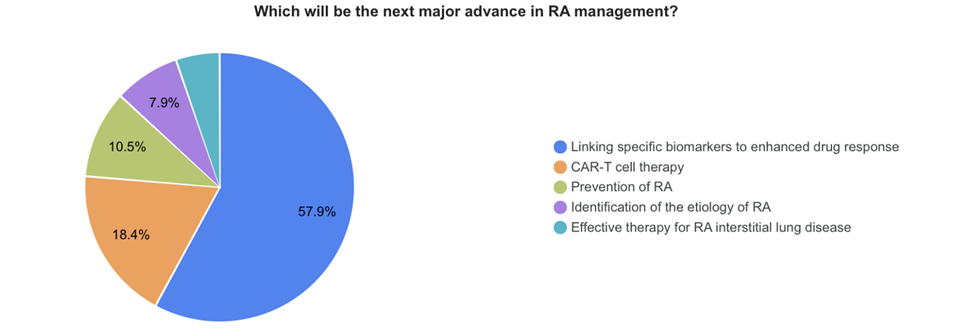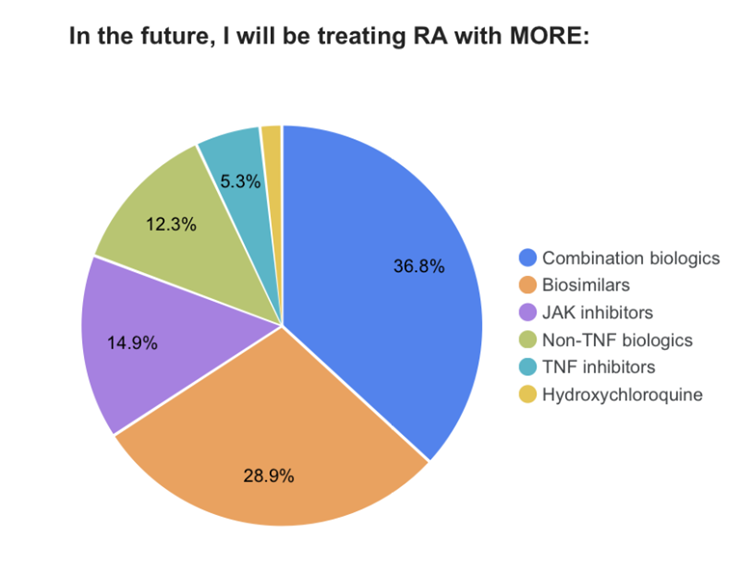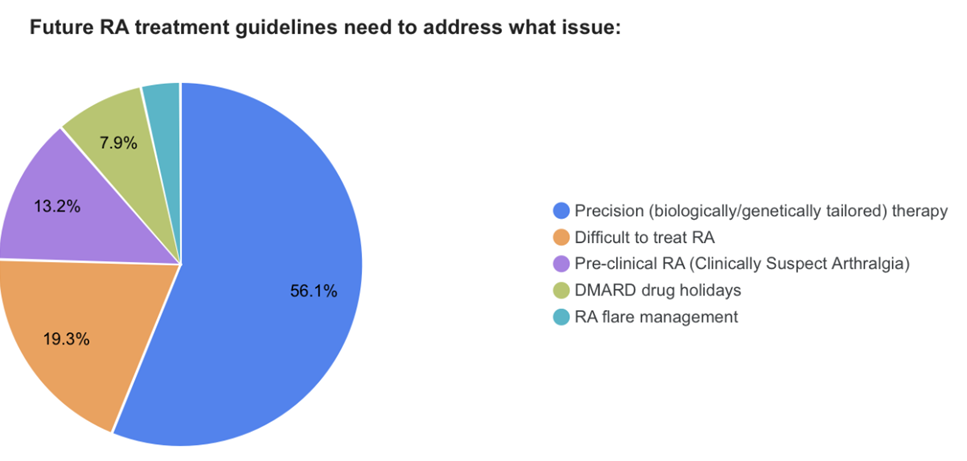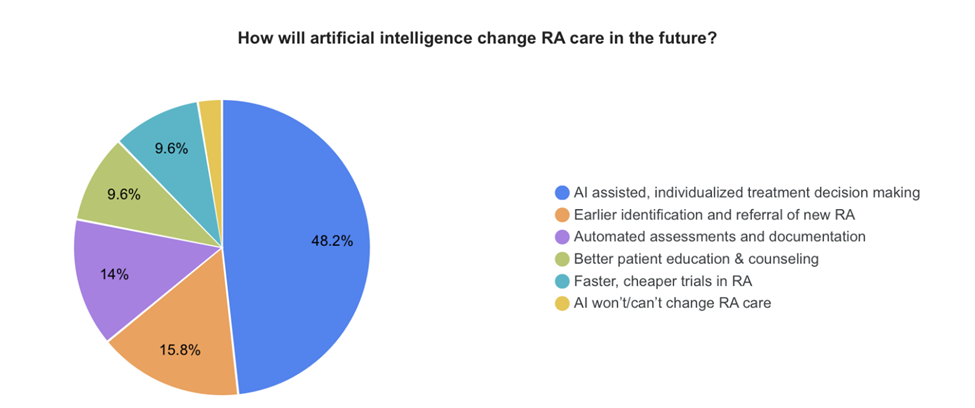Rheums Speak: Future of Rheumatoid Arthritis Save

The third survey in this series addressed clinician views on future trends (AI), future therapies and lessons learned.
This survey captured 233 responses from rheumatologists (91), most (61%) from the USA. US respondents were from the Southeast (17.5%), Southwest (11.4%), Mid-Atlantic (9.6%) or Western (9.6%) states.
Future Treatments and the Next Big Advance
Over half of respondents (58%) believe that in the future, specific biomarkers will used to enhance drug responses in rheumatoid arthritis (RA). Such expectations exceeded other possibilities, such as CAR-T therapy (~20%), prevention, or understanding the etiology of RA.

When asked about future treatment of RA, over one-third (37%) expect to use combination biologics (even though current biologic prescribing information cautions against this). Future treatment is more likely to include the use of biosimilars (29%), JAK inhibitors (15%) and non-TNF biologics (12%). These responses suggest growing comfort with more aggressive or layered biologic strategies.

In considering RA treatment guidelines, Rheums were keenly interested in future guidance on precision therapy (56%), treatment of pre-clinical RA (13%) and difficult to treat RA (19%). Nearly half (48%) anticipate that artificial intelligence will help guide and individualize treatment decisions. The vast majority (97%) believe there is some role for AI in RA care (e.g., earlier diagnosis [16%], assessment/documentation [14%]).


In summary, Rheumatologists expect a future shift toward precision medicine, AI-driven decision support, and broader acceptance of combination biologics and biologics.










If you are a health practitioner, you may Login/Register to comment.
Due to the nature of these comment forums, only health practitioners are allowed to comment at this time.